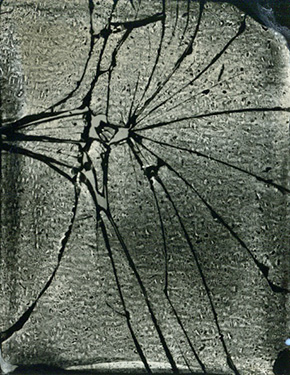


Let’s Begin. What exactly happened to the legendary Pan Am Airlines? In its 60-year run (1930-1991), Pan Am was the first to introduce international service, cabin attendants, emergency safety procedures, cockpit computers, fear of flying courses, and hot meals. Of course, some older folks remember Pan Am very well, but it isn’t much of a stretch to say that in fifty years no one will remember Pan Am except for its logos stamped onto vintage travel bags. For that matter, no one will remember the struggles and wars of the early twenty-first century like we now remember them. Last week, for example and for a reason I can’t recall, I asked my research assistant if he knew the year of the My Lai Massacre. “My who?” he said.
No one remembers Joan of Arc, except in the movies. I often have trouble remembering the exact date of D-Day or Pearl Harbor. (It’s a good thing 9/11 didn’t get another name.) Nobody remembers what my great-great grandfather did to seduce my great-great grandmother. And so what if Farah Fawcett died today at age 62, having never shaken off the blessing and curse of being a pin-up, because later in the day Michael Jackson died, and his death now overshadows hers. Farrah doesn’t even get her own death day. Not only do we die, as Virgil or some ancient must have said, but more discomfiting, even our memory dies. So, when we consider the end of Pan Am Airlines we must also consider Lockerbie, 1988. Because Pan Am Flight 103, the one in which a bomb exploded and the plane’s remains came down over the small town in Scotland, was not least of all the end of Pan Am Airlines.
I have never thought much about Lockerbie until I started writing about my trouble with phonics and reading. My mother didn’t think I would ever learn to enjoy reading as a child. She took me to a specialist, spent hours with me doing phonics flash cards, and endlessly read stories to me in bed. Nothing worked very well, until finally, around age nine, I discovered a series of books about ghosts, poltergeists, and UFOs by Daniel Cohen. Looking back now, I realize this was also around the time I first contemplated my own non-existence. It was in the back of my parents’ red Chrysler Duster on the way to church. (I may have been reading a Daniel Cohen book.) What I remember most clearly about his books is not only the fascination with whether or not ghosts existed (I intuitively sensed they must), but also the record of ghosts in photographs. I stared at black and white photographs of transparent faces for hours. I studied them from every possible angle. I dreamed about them. And then at some point, perhaps when I discovered girls or discovered that girls didn’t go in much for ghosts, at least not the girls I was interested in, I abandoned my ghost fascination. I began to prefer pictures of girls more than ghosts.
All of this comes rushing back to me now because last night on the phone my mother reminded me of my early struggle with reading. I’d phoned my parents ostensibly to see how there were, though I really phoned to ask my father about his work on an FAA radar project for Boston’s Logan Airport. Trouble was, my father couldn’t remember that much about it, except that it was to be an update of the tower’s radar. In the end, my mother reminded him that the project had been scrapped. Once my research was finished, the conversation turned from transistors and knob and tube wiring to Iraq and Chicago’s “crooked” (mother’s word) library system. From this topic, somehow we transitioned to my early reading habits and then to ghosts and Daniel Cohen.
After I hung up, I begin googling and found all the titles of my first loves: Real Ghosts, Great Ghosts, Ghosts of War, Young Ghosts, Screaming Ghosts, etc. Then I googled “Daniel Cohen,” and my heart raced when I read in his Wikipedia entry that his daughter, Theo Cohen, born two years before me, died in 1988 on Pan Am Flight 103. Soon I discovered that Daniel Cohen and Susan Cohen, his wife and also an author, published a book in 2000 called Pan Am 103, The Bombing, the Betrayals, and a Bereaved Family’s Search for Justice. Organized as a kind of dialogue between Daniel and Susan, the book details their struggle and continuing inability to cope with Theo’s death.
In 1988, Theo was flying back to the States from a semester abroad in London. If I want I can relate everything, even someone else’s death, pathetically back to myself: Three years, almost to the day, after the Lockerbie booming, I also flew back to the States via London from study abroad in Vienna. This egocentric thought reminds me that I am just as bad as those students of mine who read a poem in class and must relate it back to themselves. Recently, for example, a group of high school students and I examined a poem about a squirrel. As soon as we finished reading the poem aloud, two students immediately began telling stories about their experiences with squirrels—one girl talked about a particular squirrel she likes in nearby Audubon Park, one boy talked about a stuffed animal squirrel he had as a kid, and then the conversation diverted to another student’s fear of chipmunks. I was nearly prompted to bring up my fear of flying, to prove how silly, comparatively, a fear of forest animals is, when the image of Theo hugging one of her beloved cats flashed in my mind like a sign that reads Applause, Applause, Applause.
In reading the Cohens’ book, I was struck by a phrase uttered by one of Susan’s psychiatrists: You are a survivor. The idea was to get away from the label “victim” by substituting it with “survivor.” This parallels not only what I’ve read about, say, people who were in concentration camps, but also what my mother said to my sister and me about our father’s schizophrenia. I was an ordinary sixteen-year-old, dealing with the usual angsty problems of the age, and although I didn’t feel like either a victim or a survivor, mother used the phrase so many times sitting at the edge of my bed that even in my silent replies I knew she knew I knew she was right. It is only looking back now, considering the pathways that my father’s illness (“illness,” another word I was taught to use, though I wonder if “grief,” too, might be an illness for people like the Cohens) took through allergy treatments, aural hallucinations, and finally very strong beliefs in Jesus, astral planes, UFOs, leprechauns, and the antioxidant powers of blueberries, red wine, and garlic (try a smoothie of that stripe sometime), do I realize that my father would probably enjoy reading some of those Daniel Cohen books about ghosts I did thirty years ago.
But the substitution of the word “victim” with “survivor” isn’t just semantic. Rightly or wrongly, victim connotes a passivity and survivor connotes an activity. Survivors got through something, endured. Terrible things might have been done to them, but they didn’t just take it. They resisted physically and/or mentally. As Susan Cohen writes, “Very few people ever fight back...victims crumple up in corners, lie to themselves, and run away, or crawl in holes.” As I continue to deal with my fear of flying, I wonder if I am victim to it and, by extension, to myself. I may be both perpetrator and victim. And yet each time I deplane a flight without grabbing a flight attendant in a panic attack, I could perhaps call myself a survivor. But only in that very moment of deplaning. Because sitting here now at ease in my office chair, or sitting where you are (unless you have just deplaned) and using the word “survivor,” I feel at best melodramatic and at worst atrocious.
In the end, the Cohens’ book disappoints me because, except for skimming pages here and there, I can’t get past the first two chapters. Not because I am, or was, almost the age of their daughter, or because the Cohens’ narratives are filled with bitter rant (Daniel’s) or bitter sadness (Susan’s)—but because their losing a child made me consider the possibility of losing mine and that possibility is too much to hold in the mind for very long.

